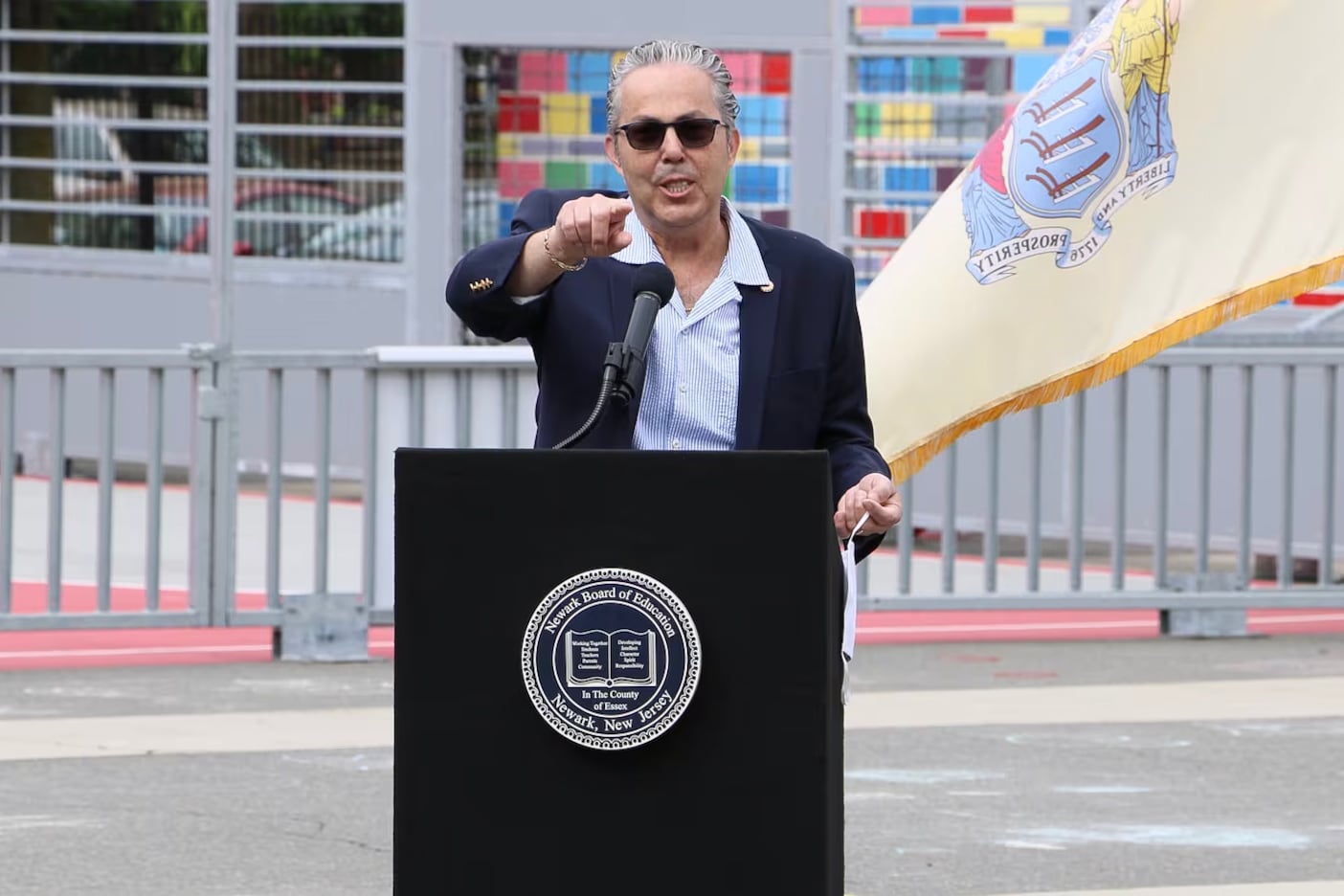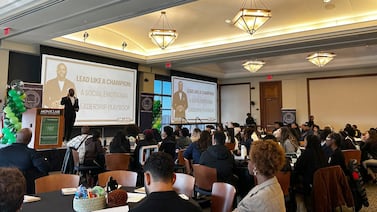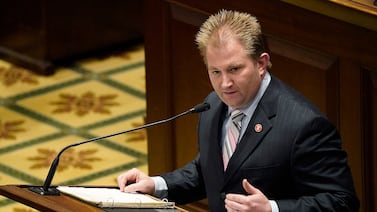Sign up for Chalkbeat Newark’s free newsletter to keep up with the city’s public school system.
A $65,000 starting salary for new teachers, 4.5% average annual raises, and more say for educators on curriculum decisions are among the new standards for Newark Public Schools teachers under a union contract members overwhelmingly approved this week.
Newark Teachers Union members stopped by the union’s Broad Street office on Thursday to vote on the proposed five-year agreement. There were 1,331 votes in favor of ratifying the contract and 582 votes against it. Just under 30% of the union’s 7,000 members participated in the vote.
In addition to what the union called several notable wins for its members, the contract will change the school schedule for educators. That’s because it will extend the workday for all teachers to seven hours, following a push by the district to have all schools follow one universal schedule.
The union reached a tentative agreement with the district in late May after roughly five months of negotiations.
“NTU members voted to approve the transformational contract that makes them a true partner with the board of education on classroom and district policies,” John Abeigon, the teachers union president, said in a statement. “The negotiations and the contract itself are an example of labor-management collaboration at its best.”
The contract takes effect for the 2024-25 school year.
New teachers starting in the upcoming school year will receive a $65,000 base salary and reach $75,500 in the fifth year of the contract. The salary guide also shows the new teacher base salary in the fifth year of the contract, or school year 2028-29, will be $74,000.
The five-year agreement provides 4.5% average annual raises, though each member’s raise may be different based on which step of the salary guide they are on. The state’s average annual salary increase is 3.5% for teachers union contracts, according to the Newark union.
Members will not see increases in health insurance and benefits costs in the new contract, unlike in other New Jersey school districts in the state, Abeigon said.
There are additional pay increases for teachers with master’s or doctoral degrees, and for teachers with 15 or more years of experience in the district.
In late May, Abeigon took to Facebook to address concerns he was hearing among members about the tentative agreement.
One source of unease was the extended workday, which is increasing from six hours and 40 minutes for high school teachers and six hours and 45 minutes for elementary school teachers to seven hours across all schools in the new contract. High school and elementary teachers will begin at 8:10 a.m. and end at 3:10 p.m. starting this upcoming school year.
The increased time will be used for extended lunch and more transition time between periods, Abeigon said. Longer lunch periods were “one of the most requested items we got in the contract meetings that we held prior to negotiations,” he added.
“There are things in the contract that we’re not really particularly happy with. There are things that the district is not particularly happy with. But that’s the definition of negotiations,” Abeigon said. “We got a lot of what we wanted. We didn’t really lose anything.”
Despite a longer workday, there will now be “mechanisms in place [to] help reduce workload and make changes to how our own buildings operate and address issues,” said Michael Iovino, the union’s secretary and treasurer, in a Wednesday Facebook video.
“It’s a longer day, and for me, I’m going to be clear that since the district demanded extra time, that’s all they’re going to get,” said Iovino, who is a social studies teacher at Technology High School.
Per-diem teachers, per-diem aides, and per-diem school clerks with 60 credits or a bachelor’s degree will see $5 increases to their rates in each year of the contract.
A new provision in the contract gives classroom teachers opportunities to participate in meetings that focus on curriculum and school-level budget matters, Abeigon said.
The contract also proposes a new child study committee team to ensure social workers and other employees have more reasonable caseloads and schedules.
Jessie Gómez is a reporter for Chalkbeat Newark, covering public education in the city. Contact Jessie at jgomez@chalkbeat.org.
Catherine Carrera is the bureau chief for Chalkbeat Newark. Contact Catherine at ccarrera@chalkbeat.org.







